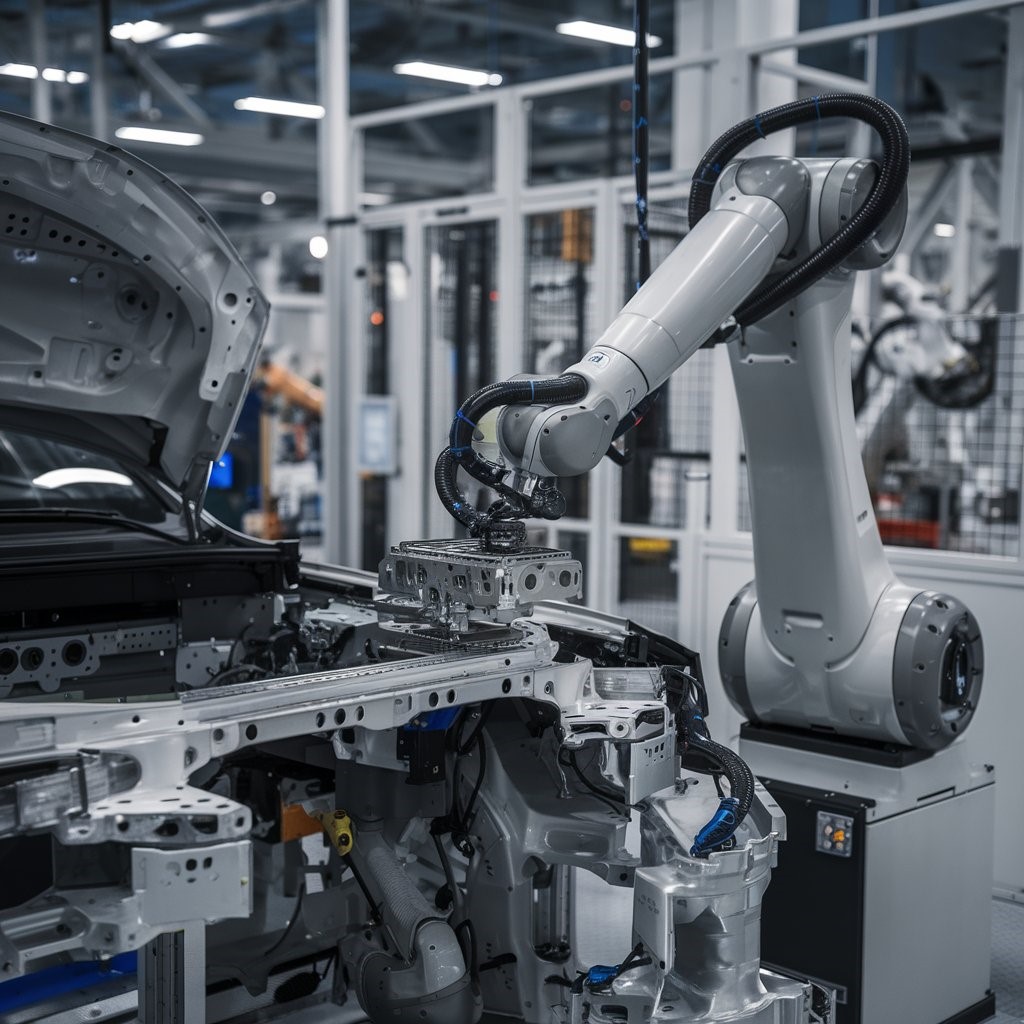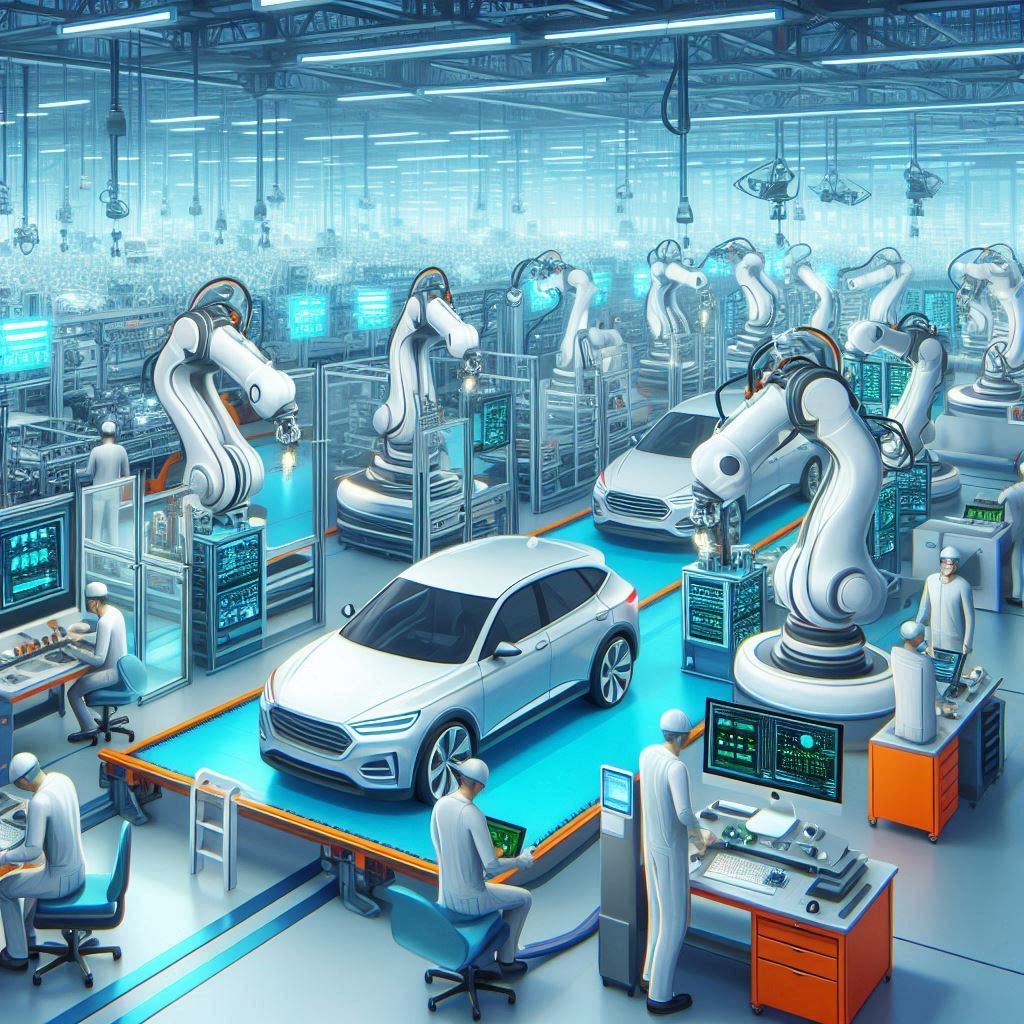The collaborative robot, or cobot, industry has undergone a profound transformation in recent years, driven largely by the advancements in Artificial Intelligence (AI). Once regarded as simple mechanical assistants confined to repetitive tasks, cobots are now evolving into intelligent collaborators capable of learning, adapting, and working alongside humans in dynamic environments. This shift is revolutionizing human-robot synergy, unlocking new levels of productivity, efficiency, and workplace safety.

The Rise of AI-Powered Cobots
Unlike traditional industrial robots that operate in isolated environments, collaborative robots are designed to work side by side with humans without the need for physical safety barriers. AI technologies such as machine learning, computer vision, and natural language processing have expanded the cognitive capabilities of these machines, allowing them to interpret complex scenarios, understand human intentions, and respond in real-time.
AI gives cobots the ability to learn from experience, identify inefficiencies, and optimize task execution without constant reprogramming. This level of intelligence allows them to adjust to changes in workflow, manage multiple tasks, and assist human workers more intuitively.
Enhancing Safety Through Intelligent Sensing
One of the most significant contributions of AI in the collaborative robot industry is the enhancement of safety. AI-powered cobots utilize sensor fusion—integrating data from cameras, LiDAR, force sensors, and other devices—to perceive their surroundings accurately. Machine learning models help predict human movement, reducing the risk of accidents and enabling cobots to take proactive safety measures.
Advanced algorithms also allow cobots to recognize gestures, voice commands, and facial expressions, paving the way for more natural and seamless interactions between humans and robots on the factory floor.
Download PDF Brochure @ https://www.marketsandmarkets.com/pdfdownloadNew.asp?id=194541294
Driving Operational Efficiency
AI-driven cobots are being deployed across industries such as automotive, electronics, food and beverage, logistics, and healthcare. They contribute significantly to operational efficiency by performing complex tasks such as assembly, quality inspection, material handling, and packaging.
With real-time data analytics, cobots can monitor production metrics, detect anomalies, and initiate corrective actions autonomously. These capabilities reduce downtime, minimize waste, and improve overall equipment effectiveness (OEE), making cobots an essential part of smart manufacturing.
Reducing Barriers for Small and Medium Enterprises (SMEs)
AI is also making cobot technology more accessible to small and medium-sized enterprises (SMEs). Traditional automation solutions often require significant investment and technical expertise. However, AI-powered cobots feature intuitive interfaces, low-code programming, and adaptive learning capabilities that reduce setup time and simplify integration into existing workflows.
This democratization of automation is enabling SMEs to compete on a global scale by increasing output, improving product quality, and addressing labor shortages.

AI and the Future of Human-Robot Collaboration
As AI continues to evolve, the future of collaborative robotics looks even more promising. Emerging innovations include:
Context-aware cobots that understand their environment and make decisions based on real-time situational data.
Emotionally intelligent robots capable of detecting human stress levels and adjusting their behavior accordingly.
Cloud-connected cobots that leverage AI models trained on global datasets to enhance capabilities.
With these advancements, cobots are poised to become trusted coworkers that not only assist but also augment human capabilities, fostering a harmonious and productive relationship between man and machine.
Challenges and Ethical Considerations
Despite the benefits, the integration of AI in collaborative robots raises several challenges. Data privacy, cybersecurity, job displacement, and the ethical use of autonomous decision-making systems are critical issues that need to be addressed. Transparent governance frameworks and upskilling initiatives will be essential to ensure responsible AI deployment in industrial environments.
The AI impact on the collaborative robot industry is not just about automation—it’s about transformation. By merging cognitive intelligence with mechanical precision, AI-powered cobots are redefining the way we work, collaborate, and innovate. As industries continue to embrace this synergy, we can expect smarter, safer, and more adaptive workspaces where humans and robots thrive together.